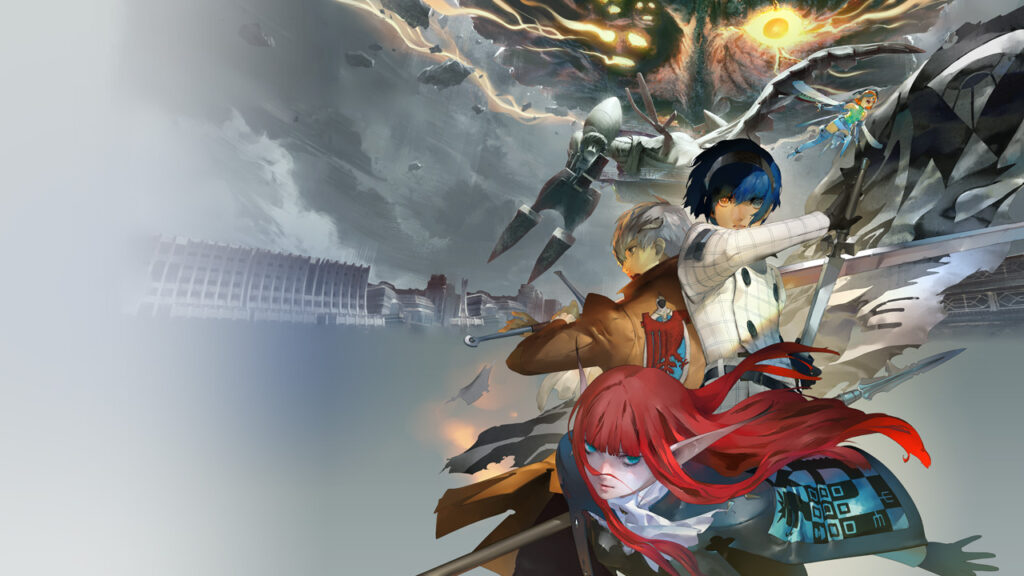-
Graphics
-
Audio
-
Gameplay
-
Story
Summary
Pros:
- Euchronia’s rich environments and diverse character designs create an unforgettable setting.
- The Synergy system and elemental strategy add depth and make battles consistently interesting.
- The well-developed backstory and cultural detail make the kingdom feel alive.
Cons:
- Despite its engaging nature, the depth of Euchronia’s history may overwhelm those new to Atlus’s storytelling style.
- Players unfamiliar with turn-based mechanics may struggle with the difficulty.
- Some quests feel slower and can interrupt the main story’s flow.
Metaphor: ReFantazio marks Atlus’s ambitious leap into a high-fantasy RPG world, departing from its iconic Persona and Shin Megami Tensei series. Set in the richly crafted United Kingdom of Euchronia, this game merges traditional turn-based combat with nuanced storytelling that delves deep into themes of social conflict, ancient magic, and personal destiny.
Known for weaving complex narratives and character-driven plots, Atlus brings its mastery to a fresh yet distinctly challenging realm that could be a genre-defining experience—or a test of patience.
With a playtime of approximately 50-70 hours for the main story alone and potentially 100+ hours for completionists, ReFantazio is designed to fully immerse players in the intricate details of its world. But does it succeed in creating a gripping fantasy experience, or does it leave players struggling to unravel its myriad mysteries? Let’s explore how ReFantazio holds up.
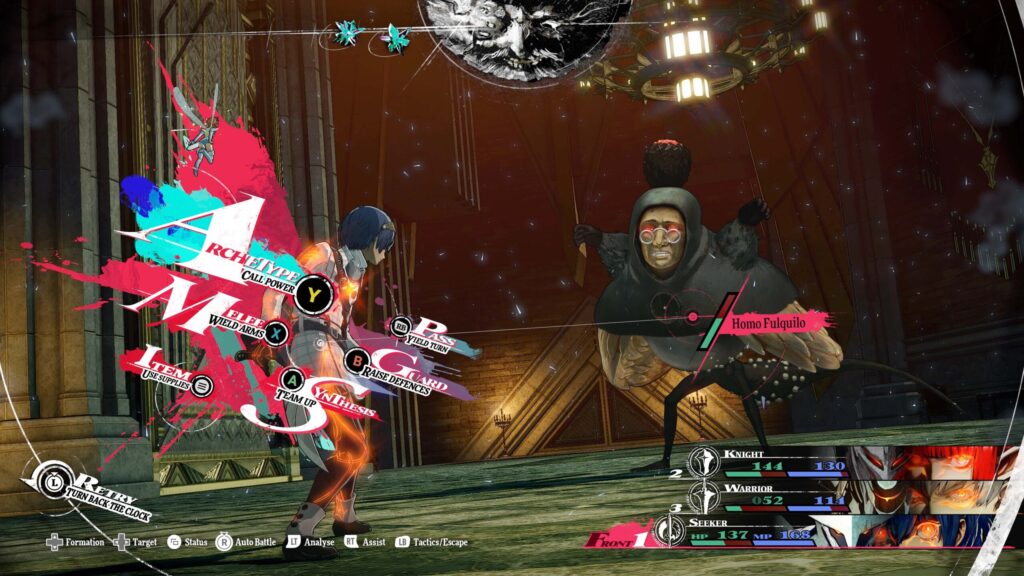
Story
In Metaphor: ReFantazio, players are transported to the United Kingdom of Euchronia, a kingdom on the brink of chaos following the assassination of its king.
The story revolves around a tournament for the throne, where different factions vie for power while the kingdom falls prey to deadly beasts and supernatural threats. The protagonist, a young member of the Elda tribe, takes on a journey to lift a curse on his childhood friend, the prince, alongside his fairy companion, Gallica. The protagonist’s tribe, the Elda, is one of eight within Euchronia and is ostracised due to its association with mysterious, “heretical” magic.
This dynamic forms the heart of ReFantazio, blending the protagonist’s personal quest with a larger political and mystical plot. The royal tournament, in which participants undergo perilous tasks for a chance at the throne, provides the setting for numerous conflicts. As players progress, they uncover the deeper mystery surrounding Euchronia’s ruling magic—a unique ability known as “Royal Magic” that has long been wielded by the royal family to maintain order. The protagonist’s journey reveals that this magic might be connected to his tribe’s mysterious past, exposing hidden truths that shape Euchronia’s society and challenge the kingdom’s power structure.
Euchronia’s setting is steeped in lore, with each tribe contributing to its rich cultural fabric. The Clemar, for instance, are known for their intelligence and distinct horned appearance, while the Mustari, recognisable by a third eye and ritualistic garb, are feared for their mysticism and shunned as “pagans.”
These diverse groups add complexity to the protagonist’s journey, as they interact with individuals who hold varied perspectives and motives. Encounters with different tribes often come with moral decisions, influencing alliances and shifting the protagonist’s path through the kingdom’s unfolding crisis.
Alongside tribal differences, the kingdom faces another threat: monstrous entities called “humans.” These creatures, with grotesque forms inspired by Renaissance artist Hieronymus Bosch, appear throughout the land, indiscriminately attacking anything in their path. Described as manifestations of human anxiety, these monsters add an eerie layer to the game’s themes, serving as both physical and psychological obstacles that the protagonist and his party must overcome. As players delve deeper into Euchronia’s history, they discover unsettling secrets about these “humans” and their connection to the world’s lore, including revelations about their origins and connection to the Elda tribe’s past.
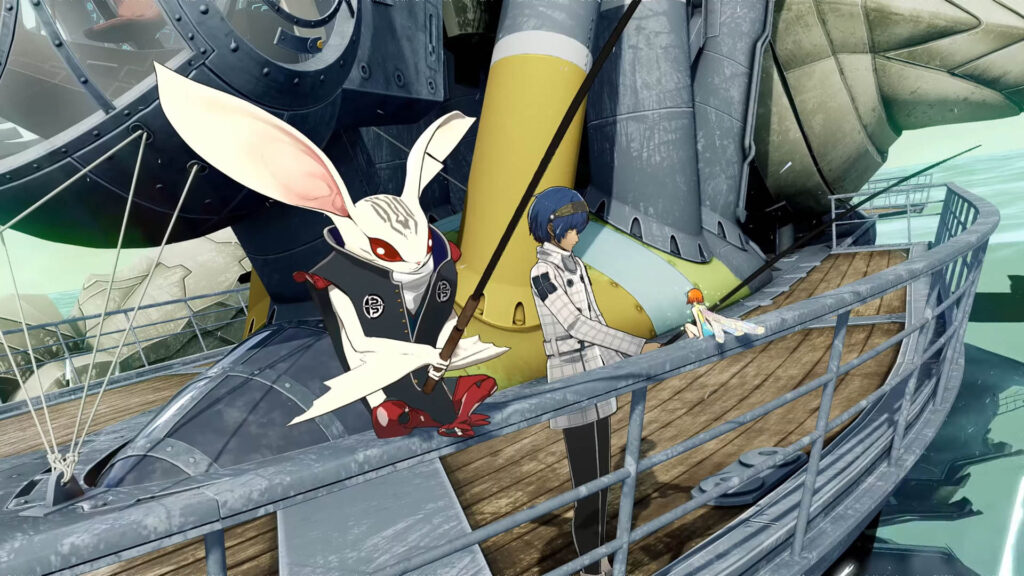
Graphics and Audio
Visually, Metaphor: ReFantazio is a standout experience. Each environment, from the opulent capital city of Grand Trad to desolate ruins and mysterious forests, is rendered with impressive detail and a unique aesthetic that blends Gothic architecture with vibrant, fantasy-inspired designs.
The settings shift from beautiful to foreboding, capturing the grandeur and tension of a kingdom on the edge of collapse. Each region of Euchronia feels distinct, whether it’s the mountainous Paripus villages or the archipelagic homeland of the Mustari. This diversity in landscapes and architectural styles creates a visually immersive experience that keeps exploration fresh and rewarding.
Character designs also shine, combining Atlus’s signature stylised look with fantasy elements that make each tribe unique. Characters from the Paripus tribe sport beast-like ears and tails, while the Ishkia are known for their iridescent eyes and noble bearing. These design choices deepen the story, reinforcing each tribe’s identity and their place in the social hierarchy. Atlus has employed an art team led by celebrated designers like Shigenori Soejima, ensuring that every detail—from clothing to magical effects—enhances the storytelling.
The audio complements this visual experience beautifully. Shoji Meguro’s soundtrack blends orchestral compositions with thematic musical cues that add emotional weight to the game’s events.
The soundtrack shifts seamlessly between grand battle anthems and haunting, contemplative pieces that underscore the protagonist’s personal journey. Voice acting brings further depth, especially in moments where characters grapple with their own motivations, backgrounds, and complex relationships with one another. This attention to sound and music creates an atmosphere that makes Euchronia feel like a living, breathing world.
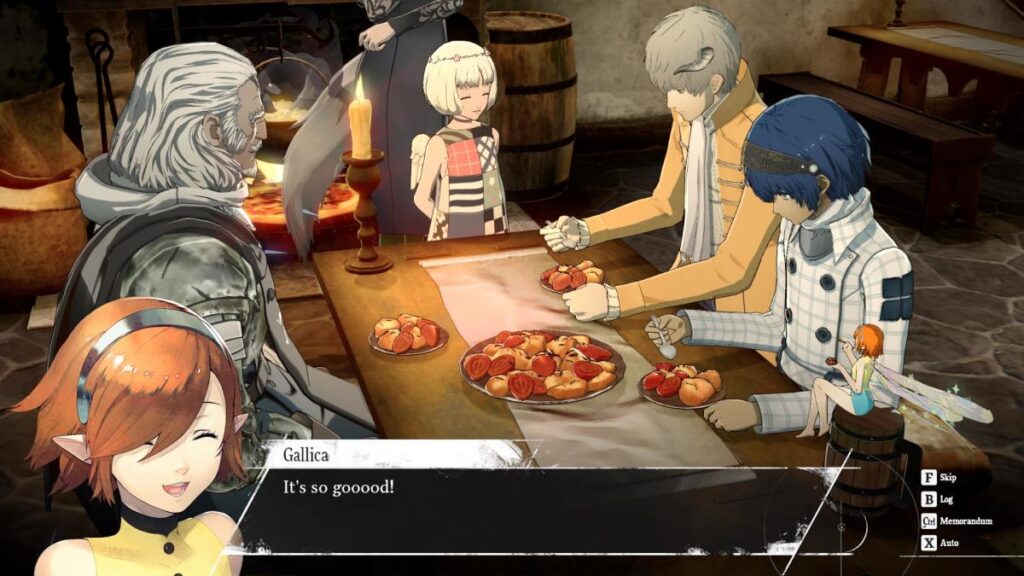
Gameplay
Atlus has built Metaphor: ReFantazio around a traditional turn-based combat system but introduced unique mechanics that make battles feel both strategic and dynamic.
Central to combat is the “Synergy” system, which allows players to combine skills and abilities among party members for powerful effects. This encourages experimentation with party composition, as finding the right synergy can make a decisive difference in tougher encounters. The combat system rewards players who take time to learn the strengths and weaknesses of each tribe’s archetypes, adding layers of strategy that keep battles engaging.
Combat is influenced heavily by elemental affinities and weaknesses, a hallmark of Atlus games. Players need to carefully manage resources, balancing offensive attacks with defensive maneuvers to survive against increasingly challenging foes. The monstrous “humans,” for instance, bring unpredictable and often devastating attacks to encounters, forcing players to adjust tactics on the fly. These encounters can be punishing, especially for those unaccustomed to strategic combat, but mastering them is rewarding and adds a satisfying challenge to the overall experience.
Exploration complements the battle system, as players traverse a sprawling kingdom filled with dungeons, cities, and hidden areas. Each dungeon presents its own set of challenges, from combat-heavy areas to puzzle-laden environments that require observation and critical thinking. Many dungeons are tied directly to the game’s lore, revealing background details about the region or its people, often providing context that makes each quest feel meaningful. Side quests are similarly rich in lore, often introducing new characters or moral choices that influence the protagonist’s journey. With a main story playtime of 50-70 hours, exploration and side quests can add dozens more, encouraging players to fully engage with Euchronia’s world and lore.
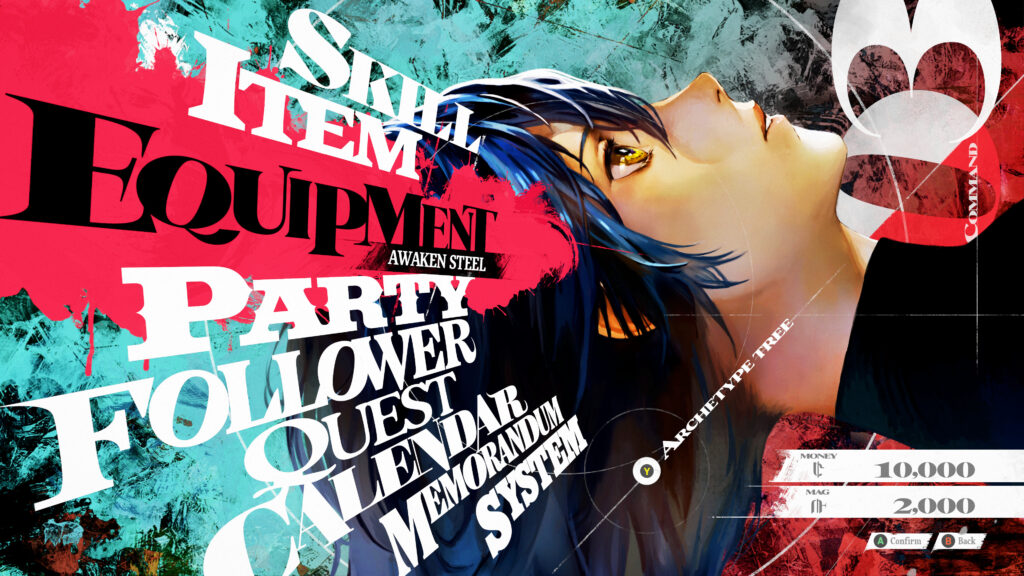
Verdict
Metaphor: ReFantazio is a powerful entry into the JRPG genre, marrying Atlus’s distinctive storytelling with an ambitious, high-fantasy setting. Its complex narrative, visually immersive world, and deeply strategic combat create a compelling experience that both challenges and rewards players willing to invest the time to uncover its layers. While its dense lore and intricate mechanics may feel daunting for newcomers, fans of lore-rich RPGs will find a lot to appreciate here.
The game’s narrative approach, balancing personal stakes with political intrigue, gives players a sense of purpose that goes beyond mere quests and battles.
The protagonist’s journey to break the prince’s curse and uncover the secrets of Royal Magic feels epic yet personal, woven together by the relationships he builds with his party and the alliances he forges with the kingdom’s diverse tribes. Each interaction in ReFantazio is laden with meaning, ensuring that players feel the weight of their choices and the impact they have on Euchronia.
For those who love immersive, challenging RPGs, Metaphor: ReFantazio is a journey that’s as thought-provoking as it is beautiful. It’s an experience that demands patience, attention to detail, and a willingness to explore every facet of its complex world, but it’s one that rewards players with a rich, unforgettable adventure.
